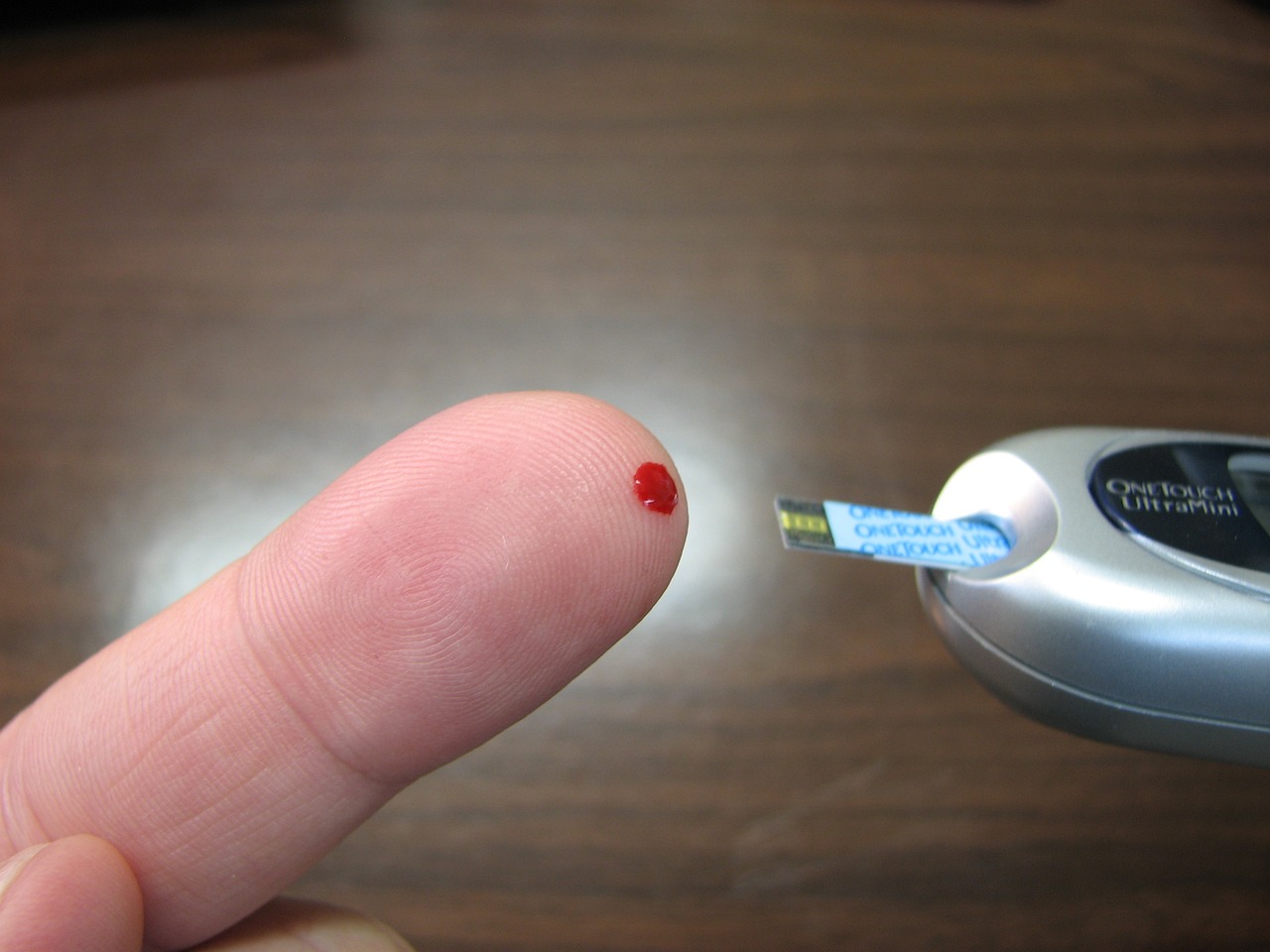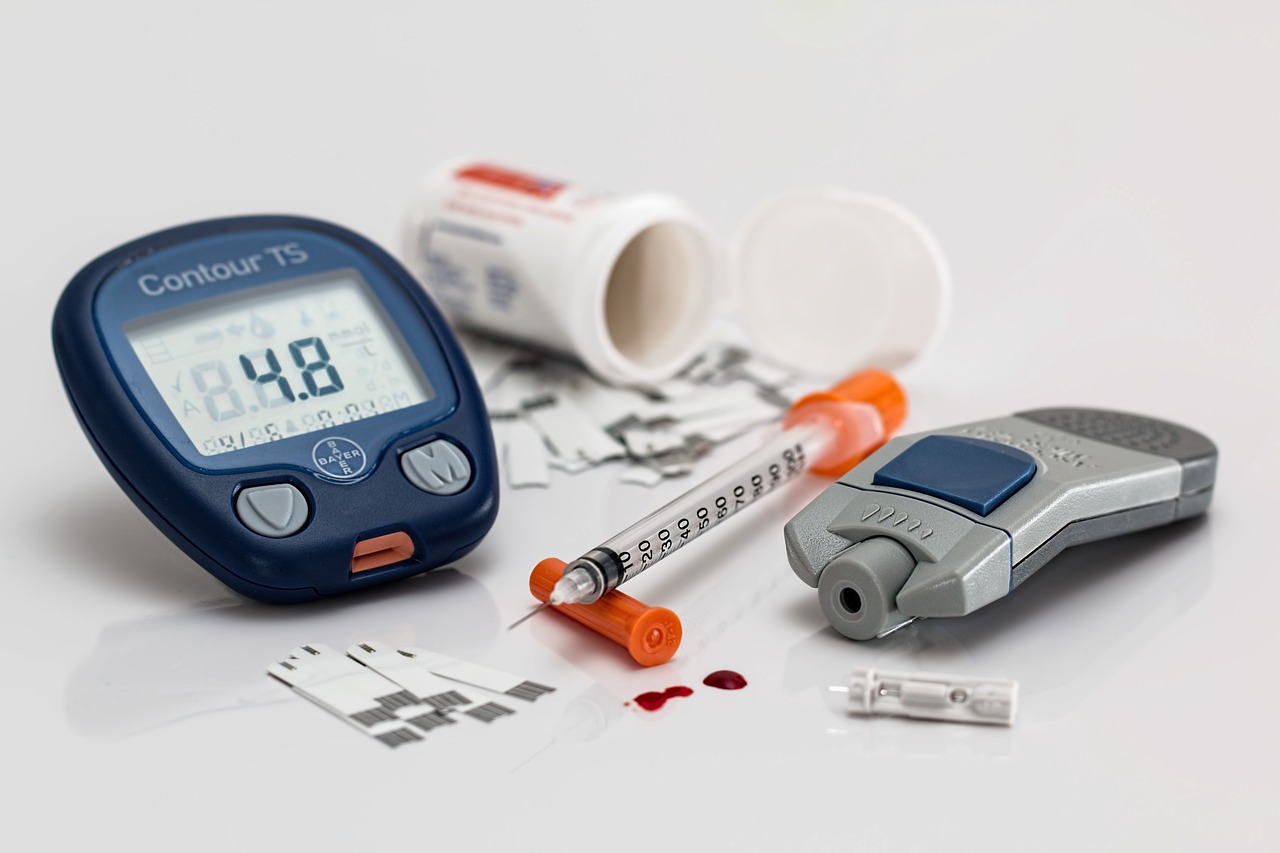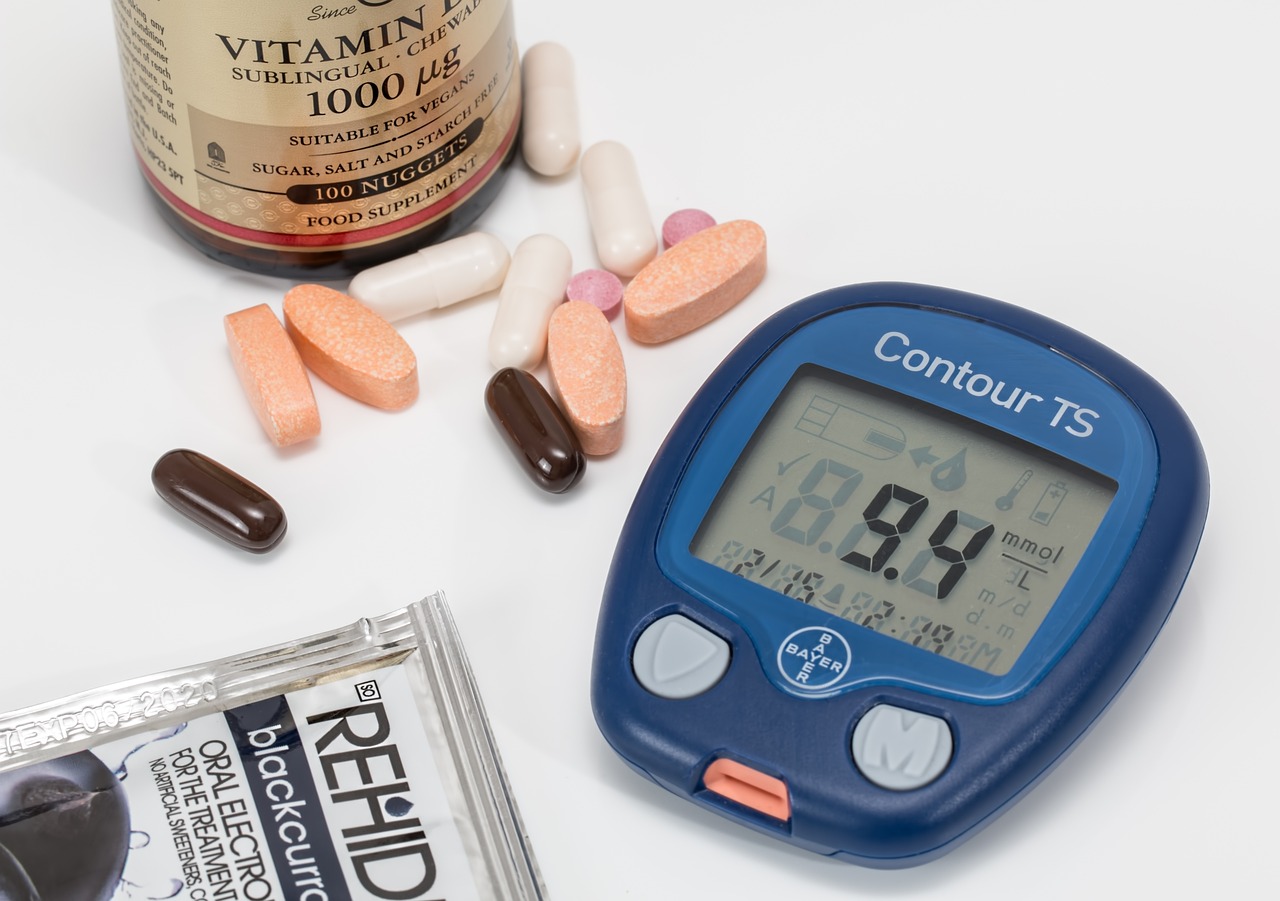Whether you’re in peak physical form, aiming to lose weight, or struggle controlling your blood sugar levels, you’ll want to increase insulin sensitivity and reverse insulin resistance. This can help you manage your weight, protect your organs from disease or complications down the line, boost your energy levels, and add years to your life. Dieting has a negative reputation for insulin. Many people feel they must avoid—or escape—it at all costs because it is portrayed as the chemical that causes you to gain weight. In many health societies, insulin is seen as “evil” and is also attributed with creating diabetes.
The fact that insulin can help you lose weight as well as being important for muscle growth may surprise you. I’m going to explain how those of us who are insulin-sensitive can (and should) use its power to get the bodies we want.
Insulin Explained
There is a misconception that because glucose is a sugar (simple sugar), it should be feared (or despised) just as much as insulin. Some people think it’s poisonous, but it’s actually necessary. The most significant metabolite that your body needs for energy, according to its description. Your cells could not function without glucose. The hormone insulin controls how your body processes glucose (as well as other metabolic processes). Despite what you may have heard about its “harmful” effects, your body needs it to function.

Your cells can absorb glucose thanks to insulin. Without it, hypoglycemia (low blood sugar) and hyperglycemia are two serious diseases that could develop (high blood sugar). Both of these symptoms indicate an unbalanced glucose level in your body. It won’t be able to transport glucose to the proper location, whether it’s because of an inadequate amount of insulin or an issue with the insulin itself. As a result, your cells are depleted of energy, and your metabolism will start to malfunction.
Insulin Resistance Vs. Sensitivity
Being insulin resistant means your body cannot generate, digest, or respond to insulin as it should, which puts you at risk for the aforementioned illnesses. Studies reveal that obese persons frequently experience it. Diabetes is related to it as well.
In people who are insulin resistant, insulin has less of an impact on metabolism. This forces your pancreas to create more of it until it runs out in order to make up for it. When this happens, when your body stops producing insulin, type 2 diabetes and pre-diabetes inevitably arise. It’s possible that abnormalities in insulin signaling brought on by an accumulation of fat in your muscle tissues are the root cause of insulin resistance, or at the very least make it worse. A bad lifestyle can exacerbate insulin resistance, according to one study.
In addition to diabetes, other illnesses such as cancer, liver malfunction, and heart disease have also been related to insulin resistance.
Conversely, insulin signaling continues unabated if you are insulin sensitive, which you should be. As a result, glucose is correctly handled, moved, stored, and utilised. Insulin sensitivity is advantageous for both gaining muscle mass and controlling weight.
To put it another way, if you have high insulin sensitivity, your body and muscles can utilise glucose more efficiently, which lowers your blood sugar. Your pancreas won’t have to work as hard to create insulin as a result. On the other hand, if you have low insulin sensitivity, your body won’t be able to use glucose (sugar) efficiently, thus it will stay in the bloodstream. As a result, if you are not particularly insulin sensitive, this will place additional pressure on the pancreas, which will respond by releasing more and more insulin.
Insulin Sensitivity Regarding Fitness
Your intermediate metabolism is fueled in part by insulin, whose action regulates how and where energy is consumed or stored. In doing so, it also controls the metabolism of your lipids, proteins, and minerals. Here is a closer look at the numerous (and significant) functions of insulin in your body.
Your Muscle Tissues Can Absorb Glucose When Insulin Is Present
Because insulin is the sole substance that can provide your muscles with the energy they need, it is essential for the regulation of glucose in their tissues. By preserving insulin equilibrium, it also controls the removal, oxidation, and storage of glucose in your muscles (homeostasis).
The fact that insulin not only promotes protein synthesis but also prevents the breakdown of your muscular structure is more important to bodybuilders.
It Promotes Muscle Preservation And Fat Loss
Insulin can impact how your body breaks down fat, which can have an impact on how much muscle you gain. Because of the similarities between how your body uses lipids and carbohydrates, insulin is just as efficient at processing sugar as it is at burning fat. Glycogen, the major type of glucose saved for later use, is produced in response to insulin. Consider it more of a reservoir of energy than a fuel. When your liver’s supply of glycogen is exhausted, extra glucose is then sent somewhere else, where it is converted to fatty acids.
Because fatty acids are used as fuel in this process rather than sugar, your body burns fat without destroying your muscles. It is a myth that insulin accelerates weight growth, despite the fact that it makes your body store more fat. The main element in weight control is controlling your sugar and fat consumption to promote optimal calorie burning. With the help of insulin, energy is stored where it should be, preventing blood sugar levels from rising. You decide how to make use of the energy it holds.
You should also be aware that your appetite and eating habits will have an impact on how effectively insulin stores fat. Controlling your food intake increases the amount of fat your body will burn by starting a cycle between the hormones leptin and insulin.
In conclusion, it is not accurate to state that improving your insulin sensitivity would inevitably result in better weight reduction. Instead, if your food and lifestyle accommodate and activate your body’s insulin sensitivity, it will be more able to burn fat.

Muscle Growth And Insulin
There is considerable dispute over insulin’s impact on muscles, but as I just indicated, it boosts protein synthesis, which is essential for growing muscle. To go even further, there is proof that poor muscle mass may contribute to insulin resistance.
Although your muscles are comprised of protein, glucose is what gives them energy. When you exercise, your muscles use the glucose in your blood to fuel their activity. Your blood sugar will be better controlled the more you workout and use your muscles.
As a result, your pancreas needs to generate less insulin the more muscle you have. This improves your insulin sensitivity over time. Resistance training is well known as a great technique to maintain insulin sensitivity since it encourages fat burning.
Afterburn is another aspect of this. Your muscles remain still active after resistance training. This implies that your muscles continue to consume fuel, in this case sugar, even while you aren’t exercising.

Overall, the roles of muscle and insulin are interdependent. While insulin promotes muscle growth, the opposite is also true.
Preventing Protein Degradation
Protein is not only built and promoted by insulin, but it is also protected by it. This is made possible by its anti-catabolic qualities. Although protein synthesis happens frequently, protein catabolism also happens frequently, thus your body is never totally inert.
To gain muscle, you must produce more protein than your body consumes. Insulin retains protein and stops it from being wasted or broken down. This will enable you to build more muscle over time with less effort.
Enhancing Performance
Your enzyme usage goes up when you take insulin. It’s not yet clear how much of an impact this has on your muscles, but it’s possible that it will improve your general performance, muscle recovery, and endurance.
Techniques To Increase Insulin Sensitivity
The way your body processes insulin is partially influenced by your heredity. You may be more susceptible to resistance if your insulin receptors are mutated. To ascertain the extent to which this matters, more investigation is necessary.
As far as we are aware, genetics does not ultimately determine how sensitive you are to insulin. Although your lifestyle has a bigger impact, your DNA and age may make you more susceptible to changes in your insulin production.
The good news is that, as long as insulin resistance hasn’t developed into diabetes, it can be reduced and reversed. There are steps you can do to optimize your insulin processes, but your food and exercise are most successful in managing it. The distribution of your insulin is influenced by your weight, as one of the experiments I described demonstrates. The best defense against insulin resistance is fitness, although it’s not 100% effective. You still need to watch your food even if you are at your optimal body weight.
You consume glucose through food, and if your diet contains too much of it, your pancreas may have to work harder. One of the reasons low-carb diets are so popular is because cutting back on carbohydrates lowers your consumption of sugar, which in turn affects your insulin.
Here are some additional factors to think about if you want to fully benefit from insulin sensitivity for muscle growth and weight loss.
Increase Cardio
Cardio is very important to bodybuilders, even if they prefer to only hit the weights. Cardio can increase your overall insulin sensitivity even though resistance exercise has a measurable impact on insulin and muscle building.
One study that involved the observation of diabetes patients revealed a notable improvement in insulin regulation. Another intriguing benefit of high-intensity interval training is that it significantly lowers insulin resistance in diabetic subjects.
These come with the disclaimer that diabetes cannot be cured, but naturally, in individuals who do not have diabetes, this can significantly improve your sensitivity to insulin. This is supported by a research that looked at non-diabetic people and found the same outcome. If you exercise often enough, cardio can boost the uptake of glucose into your cells.
Monitor Your Carb Intake
There is much misconception about glucose and insulin when it comes to the controversial topic of carbohydrates in fitness. Some publications recommend completely avoiding carbohydrates, while others advise increasing your carbohydrate consumption.
The misconception is most likely brought on by the fallacy that insulin or glucose can contribute to weight gain. It is true that glucose causes your body to manufacture more fat for storage, but as I have stated, this has no bearing on your weight; your fitness level does.
According to one study, changing your carb consumption is probably not going to have an impact on how sensitive you are to insulin; instead, lipids seem to be the bigger issue.

It is not necessary to eliminate all carbohydrates, but you should be aware of the types and quantities you consume. With proper carbohydrate consumption and exercise, blood sugar levels will rise, requiring less insulin from the body.
Contrary to what is commonly believed, an interesting study revealed that increasing carbohydrates and fiber may help control insulin sensitivity. However, the majority of research points to a low-carb/high-protein diet as being the best for improving insulin sensitivity. According to one study, cutting back on carbohydrates improved blood sugar, cholesterol, triglycerides, and insulin sensitivity.
Be Mindful Of Your Vitamins
Your insulin sensitivity may be impacted by how you replenish your vitamins. According to one study, the major culprits, vitamin C and E, may not prevent insulin sensitivity, but they may change it.
It depends on the timing and manner of the supplement. When consumed naturally, there is no indication that they would have any negative consequences, but when taken as supplements, they might affect protein synthesis.
You should refrain from taking these vitamin supplements right after exercise in order to be safe.
Other Things To Keep In Mind

Reduce Weight, Especially Abdominal Fat
Losing weight is imperative to reversing insulin resistance.
Reduce Psychological Stress
Manage your stress levels with breathing exercises, meditation, therapy, or movement like yoga.
Reduce Caffeine Intake
Caffeine tires out the adrenals and contributes to insulin resistance.
Supplements
Speaking of supplements, if you make the right decision, you may be able to increase your insulin sensitivity. The following could enhance insulin sensitivity while also encouraging weight loss and muscle growth:
Omega-3 Fatty Acids
Omega-3 fatty acids have several advantages, some of which have an impact on how your body processes insulin. These fatty acids can lessen the negative effects of saturated and trans fats. Additionally, they can improve insulin signaling.
ALA
Even if you are insulin resistant, research suggests that alpha-lipoic acid may improve your muscles’ ability to process glucose.
Magnesium
The emergence of insulin resistance has been linked to a magnesium shortage. According to one study, magnesium is essential for insulin signaling.
Chromium
There is proof that adding chromium to your diet is good for your entire metabolism. It lessens metabolic syndrome’s symptoms and insulin resistance.
Vitamin D
Vitamin D is recognized to lessen insulin resistance in addition to having links to numerous other diseases and ailments. In obese people, a deficit is associated with insulin resistance.
Post-Workout Protein
Research indicates that consuming protein after working out may improve insulin sensitivity. According to one idea, the time soon after exercise is when your muscles are most responsive to insulin signaling and your insulin sensitivity is at its highest.
Before you start, you should seek their guidance if you are insulin resistant or at risk of developing prediabetes. They can also provide you advice on the supplements that are most beneficial for you.

In Conclusion
Because the function of insulin in health is so gravely misunderstood, insulin sensitivity is frequently disregarded in fitness. It should not be ignored because it is essential to your health. Your body is powered by it as it delivers energy to your cells.
Although having too much of it is hazardous, controlling it is more crucial. Your body won’t be able to function normally if you have insulin resistance, which will have an impact on your blood sugar levels.
Although managing your insulin sensitivity can help you gain muscle and decrease weight, it is not a magic cure. By managing your activity and diet, you still need to put some work into it.








